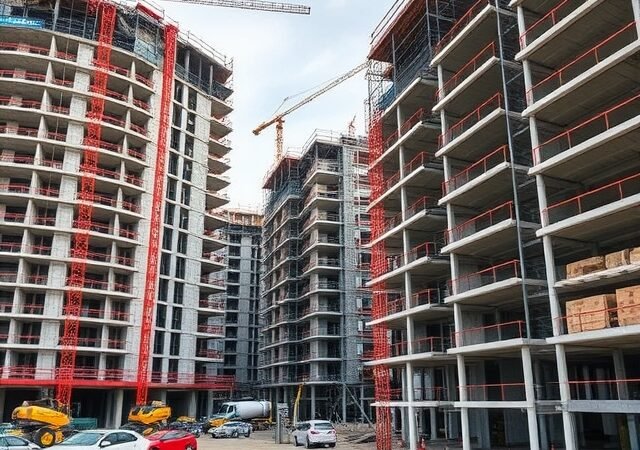The dream of owning a home is universal, especially in a bustling city like Mumbai. However, the journey to fulfilling this dream can sometimes lead to unexpected challenges, as seen in recent cases where numerous flat purchasers were defrauded by unscrupulous builders. Over 900 middle-class homebuyers were left in distress after investing their hard-earned money, often through loans, in a project that never materialized. This article aims to educate potential homebuyers about such scams and provide guidance on safeguarding their interests and seeking remedies if needed.
Understanding Real Estate Scams
Real estate scams typically involve developers or builders who fail to deliver promised projects. Common tactics include:
- Pre-sale scams: Selling flats without obtaining necessary approvals or clearances.
- Diversion of funds: Using buyers’ payments for purposes other than the project.
- False promises: Misleading buyers with exaggerated project timelines or amenities.
- Fraudulent paperwork: Selling properties with disputed titles or encumbrances.
How to Protect Yourself as a Homebuyer
1. Verify Builder Credentials
Research the builder’s track record by reviewing past projects, client testimonials, and RERA (Real Estate Regulatory Authority) registration. A RERA-registered project ensures compliance with legal norms.
2. Demand Legal Documentation
Always ask for essential documents, such as:
- Title deed
- Commencement certificate
- Approved building plans
- Occupancy certificate (upon completion)
3. Check for Approvals and Clearances
Ensure the builder has secured approvals from local authorities, including land-use permissions and environmental clearances.
4. Avoid Blind Trust
Never pay substantial amounts upfront without understanding the payment terms. Opt for payment plans linked to construction milestones.
5. Consult a Legal Expert
Engage an independent lawyer to verify all documents and agreements. This small investment can save you from significant financial loss.
What to Do If You Fall Victim
If you suspect foul play, act swiftly:
1. Lodge a Complaint with RERA
RERA provides an effective grievance redressal mechanism. File a complaint against the builder for non-compliance or fraud.
2. Approach Consumer Forums
Under the Consumer Protection Act, 2019, you can seek relief for unfair trade practices or service deficiencies.
3. File a Civil or Criminal Case
If the issue involves fraud, you may file a civil suit for recovery or a criminal case for cheating under Section 318 of the Bharatiya Nyaya Sanhita (BNS).
4. Engage Welfare Associations
Joining or forming a welfare association, as seen in the recent Bombay High Court case, can amplify your voice and provide collective bargaining power.
Legal Recourse: A Case Study
In the recent Bombay High Court case (Writ Petition No. 17223 of 2024), over 900 homebuyers accused a builder of failing to deliver flats despite substantial payments. The court granted ad-interim relief and directed the State’s Urban Development and Housing Departments to address the buyers’ grievances. This case highlights the importance of collective action and legal recourse.
Key Takeaways for Buyers
- Research thoroughly before investing in a project.
- Prioritize legally compliant, RERA-registered projects.
- Maintain a paper trail of all transactions and communications with the builder.
- Act decisively if faced with delays or irregularities, leveraging RERA, consumer forums, or legal avenues.
Owning a home is a cherished milestone, but caution is essential. By staying informed and vigilant, you can safeguard your investment and turn your dream into reality without unnecessary hurdles.
For any queries please email me at giganisaqib@gmail.com.
The above is an interpretation and expression of the author. All cases have unique circumstances and events which require to be considered before commenting on the Law. Each legal case is unique, with its own set of circumstances and facts that must be carefully considered before any legal advice or opinion can be given. Therefore, while the article aims to enhance legal knowledge and assist individuals in understanding the law, it should not be used as a substitute for professional legal advice. It is strongly recommend that you consult with a qualified legal professional to discuss your specific situation before making any legal decisions or taking any action.

